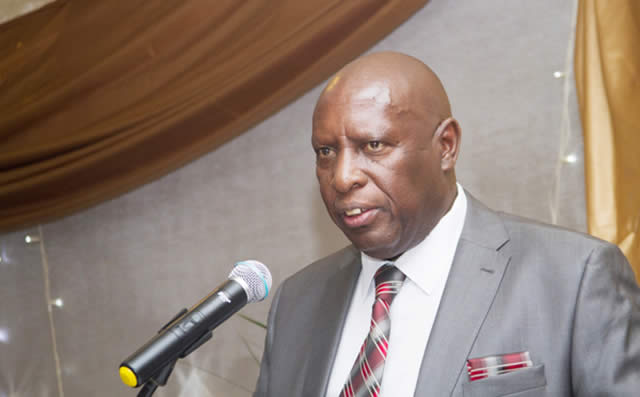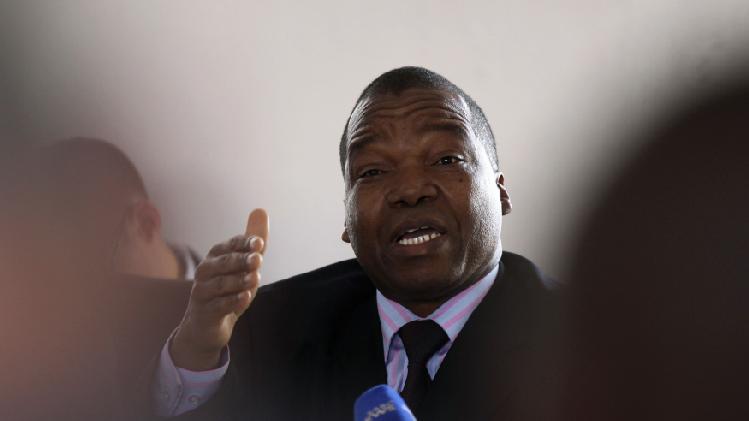Zesa switch off costs 500 jobs at Sable

Zvamaida Murwira Senior Reporter
Zesa Holdings has switched off the country’s sole Ammonium Nitrate manufacturer, Sable Chemicals, rendering about 500 people jobless. This follows an announcement by Energy and Power Development Minister Samuel Undenge last week that 40 Megawatts that had been dedicated to the firm would be diverted to residential areas.
Sable Chemicals chief executive Mr Jack Murehwa confirmed the development yesterday. “We are off already. Zesa has switched us off. We have closed our plant. This has affected about 500 workers. “There is nothing we can do. We have been engaging Zesa, but it failed. We will, however, engage Government and see if we can reach common ground.”
Mr Murehwa said the withdrawal of electricity meant they would stop manufacturing fertiliser because they had no alternative source of power. He said he had been locked up in several meetings over the weekend trying to persuade Zesa, but failed. The decision to stop operations was likely to dent agricultural production as farmers would have to do with the available AN on the market.
Mr Murehwa, however, said the company, a joint venture between Chemplex Corporation and TA Holdings’ feasibility studies of adopting new technology, which would use Coal Bed Methane had been successfully completed. CBM is a method of extracting methane from a coal deposit through a process called steam reforming.
Methane absorbed into a solid coal matrix, will be released if the coal seam is depressurised and hydrogen will be extracted. CBM, which will generate electricity once commissioned and will be fed in the national grid unlike the current electrolysis plant, which was set up in 1972 that has become expensive to run due to antiquated machinery.
Mr Murehwa said the company was now looking for funding, believed to be around $600 million to construct a pipeline to transport gas from Lupane gas fields to Sable Chemicals plant near Kwekwe. When Sable Chemicals is operating at full capacity it requires 115 MW to produce 240 000 tonnes of Ammonium Nitrate Fertiliser per year.
This year, the company was geared towards producing 100 000 tonnes ahead of the summer cropping season. The firm was in September 2009, forced to suspend operations as it could not pay for the high electricity tariffs charged by ZESA. Government had to intervene by appointing a special Cabinet committee to map the way forward. Production resumed two months later after an internal arrangement between the Government and ZESA.
The country has, during the past few years, been forced to import fertiliser as the local companies were failing to meet demand. The low yields recorded by farmers over the same period were largely as a result of either shortage of the fertiliser or late delivery of the commodity to farmers. The decision to switch off Sable Chemicals was among a cocktail of drastic measures announced by Government last week.
Minister Undenge said major mining companies and other heavy power consumers such as Sable Chemicals, had to reduce consumption by up to 25 percent. The decision to withdraw power supplies to Sable Chemicals, which consumes 40 Mega watts of electricity saw the Midlands-based firm pressing the panic button saying it will result in the loss of 500 jobs.
Security cantonments have also been asked to load-shed non-essential areas as part of measures adopted by Government to reduce the impact of the massive power cuts being experienced across the country. This is expected to save about 25MW, said Minister Undenge.
Sable Chemicals, which consumes 40MW of electricity and owes $150 million in unpaid bills to the Zimbabwe Electricity Transmission and Distribution Company (ZETDC), would be weaned off the national grid and its supplies channelled to domestic consumption. He told Parliament last week that Government had engaged Mozambique to increase electricity supply.
“We usually import 50 megawatts of electricity from Mozambique but we are engaged in talks with them to increase the supply. Zambia is also experiencing worse challenges than us as a result of shortage of electricity. Not only Zambia but the whole Sadc region is being affected by electricity shortages,” said Minister Undenge while fielding questions in the National Assembly.







Comments